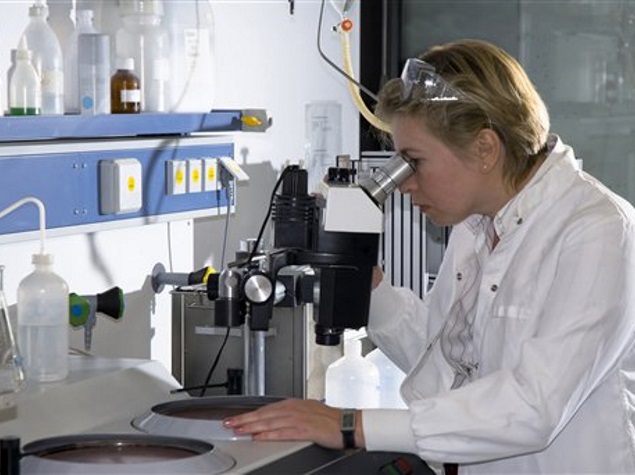- Home
- Science
- Science News
- Human Trial Shows Promise for Novel Cancer Vaccines
Human Trial Shows Promise for Novel Cancer Vaccines

In this case, three people with melanoma received vaccines designed to alert the immune system to mutated proteins found in their tumours. Vaccines made from mutated proteins found in tumours bolstered immune responses to cancer.
"It is too soon to say whether the resulting immune response will be enough to rein in tumour growth, but the trial is a crucial proof of concept, " said Ton Schumacher, cancer researcher from the Netherlands Cancer Institute in Amsterdam in a report in the scientific journal Nature.
Mutated proteins produced by cancerous cells can serve as a siren call to immune cells, signalling the presence of a cell that has become, in a sense, "foreign".
Unfortunately, many of these calls are never heard. Some tumours suppress nearby immune responses, and mutated tumour proteins may not be expressed at high enough levels to rally immune cells.
"Researchers have long dreamed of using those mutated proteins to generate a vaccine," says immunologist Beatriz Carreno of Washington University in St. Louis, Missouri.
For this study, the researchers sequenced the tumour genomes in samples taken from three people with melanoma and catalogued the mutated proteins in each sample.
They then chose seven protein fragments per patient for use in the vaccine. White blood cells were taken from each patient and cultured in the laboratory to generate immune cells called dendritic cells.
These cells were then exposed to the protein fragments, allowed to mature in the laboratory and then infused into the patients. By then, the dendritic cells had taken up the protein fragments, and were able to present them to immune cells in the body.
The result: immune cells trained to target the mutated proteins produced by the tumour. Such immune cells were evident in the patients' blood two weeks after vaccination.
According to Carreno, the approach could also work in other cancers that contain a lot of mutations, such as lung, colon and bladder tumours.
Catch the latest from the Consumer Electronics Show on Gadgets 360, at our CES 2026 hub.
Related Stories
- Samsung Galaxy Unpacked 2025
- ChatGPT
- Redmi Note 14 Pro+
- iPhone 16
- Apple Vision Pro
- Oneplus 12
- OnePlus Nord CE 3 Lite 5G
- iPhone 13
- Xiaomi 14 Pro
- Oppo Find N3
- Tecno Spark Go (2023)
- Realme V30
- Best Phones Under 25000
- Samsung Galaxy S24 Series
- Cryptocurrency
- iQoo 12
- Samsung Galaxy S24 Ultra
- Giottus
- Samsung Galaxy Z Flip 5
- Apple 'Scary Fast'
- Housefull 5
- GoPro Hero 12 Black Review
- Invincible Season 2
- JioGlass
- HD Ready TV
- Laptop Under 50000
- Smartwatch Under 10000
- Latest Mobile Phones
- Compare Phones
- Tecno Spark Go 3
- iQOO Z11 Turbo
- OPPO A6c
- Samsung Galaxy A07 5G
- Vivo Y500i
- OnePlus Turbo 6V
- OnePlus Turbo 6
- Itel Zeno 20 Max
- Lenovo Yoga Slim 7x (2025)
- Lenovo Yoga Slim 7a
- Lenovo Idea Tab Plus
- Realme Pad 3
- Garmin Quatix 8 Pro
- NoiseFit Pro 6R
- Haier H5E Series
- Acerpure Nitro Z Series 100-inch QLED TV
- Asus ROG Ally
- Nintendo Switch Lite
- Haier 1.6 Ton 5 Star Inverter Split AC (HSU19G-MZAID5BN-INV)
- Haier 1.6 Ton 5 Star Inverter Split AC (HSU19G-MZAIM5BN-INV)

















